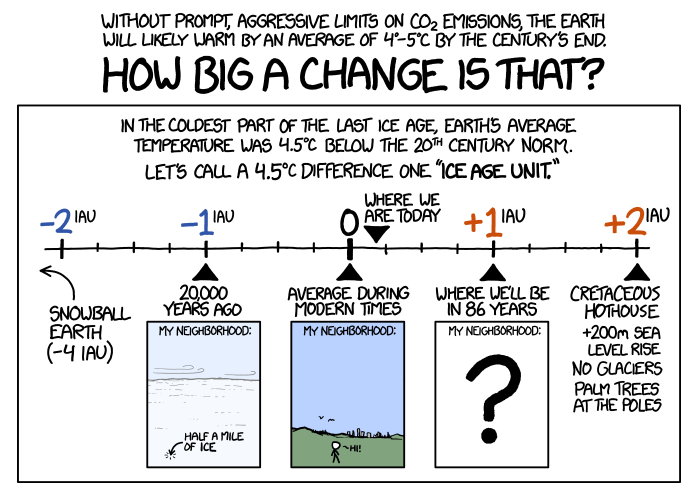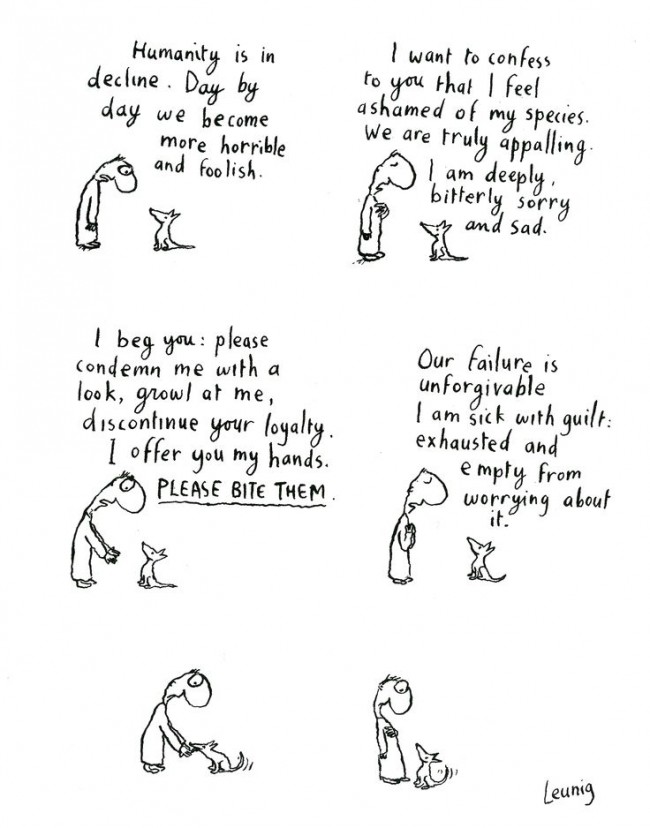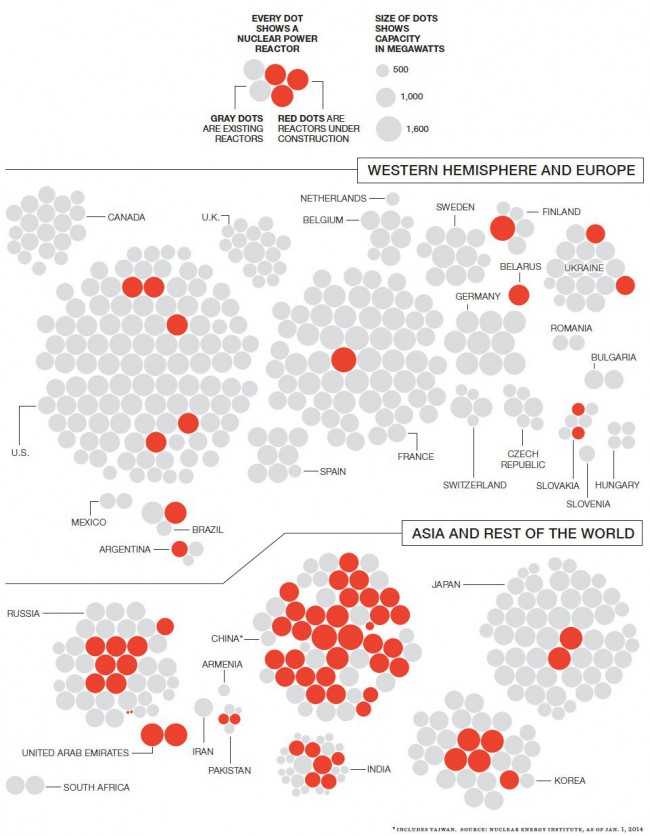image by Marsel van Ooosten via overgrowthesystem.com
My worldview continues to shift between those of 5 of the ‘camps’ in my New Political Map:
- The Existentialist/Dark Mountain camp (J), where my heart lies, and which calls on me to focus attention, for now, on learning presence, self-awareness, healing and becoming less dependent on industrial civilization as it collapses;
- The Communitarian/New Tribal camp (I), which calls on me to focus attention on the collective work of building resilient communities and collective (rather than personal) capacity where I live, now, so the survivors of looming collapse will be ready;
- The Deep Green Activist camp (H), which calls on me to fight the destruction of the natural world with everything I have and regardless of the risks, even if successes are localized and transitory;
- The Transition/Resilience camp (G), which calls on me to focus on projects that just might make things better in my community before collapse or at least mitigate the hardship of collapse;
- The Humanist camp (F), which calls on me to act as if we can reform civilization before it collapses, even if I believe it’s futile.
Camp J seems the most sensible but too internally-focused, camp I seems pragmatic but premature, camp H seems the most responsible but ultimately pointless, camp G seems pragmatic but ultimately pointless, and camp F seems responsible but delusional. Camps F and H, and camps G and I, share similar worldviews but are on opposite sides of the salvationist/collapsnik “can we really do anything in time?” divide. It’s a difficult straddle, but somehow I manage it. Camp J is safer, but runs the inevitable risk of being labeled a selfish defeatist.
And I keep peering at the disturbingly compelling arguments of the Voluntary Human Extinctionists (camp K) and the Near Term Extinctionists (camp L), but I am not ready to concede that humans are inherently violent and destructive, or that no complex life will possibly survive this century’s climate change. Too big a leap for me to make yet, though I fear they may both be right.
John Michael Greer (who, like James Kunstler is clearly a collapsnik but vague in his worldview on how we should prepare for it and hence hard to put in any of these ‘camps’) this week summarized how the decline and fall of civilizations occurs:
It takes between one and three centuries on average for the fall to happen—and no, big complex civilizations don’t fall noticeably faster or slower than smaller and simpler ones. Nor is it a linear decline—the end of a civilization is a fractal process composed of crises on many different scales of space and time, with equally uneven consequences. An effective response can win a breathing space; in the wake of a less effective one, part of what used to be normal goes away for good. Sooner or later, one crisis too many overwhelms the last defenses, and the civilization falls, leaving scattered remnants of itself that struggle and gleam for a while until the long night closes in.
Alas, after this quite sophisticated explanation of how complex systems fail, John provides a rather fanciful collapse scenario of one possible future, taking two centuries and involving mostly lots of ghastly wars. My view of human nature is rather more charitable, and I think our decline to below a billion will result more from voluntary and involuntary reductions in birth rate, and from diseases, mostly old ones modern technology has temporarily kept at bay. Because I see economic collapse as a great wealth equalizer (most wealth is now, after all, only vulnerable paper wealth), and because it will make war extremely expensive, I do not expect collapse to be nearly as violent as many collapsniks envision. I keep thinking of the millions of Irish during the potato famine, sitting in their homes with their families slowly starving to death, because they felt (wrongly as it turned out) that everyone was in the same situation and there was no one to blame. The Great Depression had many similar qualities of personal struggle and mostly egalitarian charity.
But I may be guilty of wishful thinking. The societal collapse in Germany in the last century brought out the worst in everyone. And today, many impoverished and desolated places, from inner cities in North America and suburbs in Europe to whole swathes of Africa, Asia and Latin America (like this community in Honduras) have degenerated into tribal thuggery, and are now largely run by warbands filling the power vacuum created by corrupt or dysfunctional governments. John Gray recently wrote an article arguing that our species has always been cruel, violent and destructive, and that it is in our nature to be so. [thanks to Richard Saunders for the last link above]
I hope they’re wrong. I have to believe they’re wrong.
~~~~~
PREPARING FOR CIVILIZATION’S COLLAPSE
image from xkcd; thanks to Leif Brecke for the link
World Population to Hit 11B This Century and Keep Rising (Barring Collapse): As I have said before, the rosy UN and US population bureau statistics forecasting a levelling off of human population by 2050 were always nonsense. Now at last they’re admitting their estimates were far too low.
Including Our Farmed Animals, We’re At 7x Earth’s Carrying Capacity: A new analysis by Paul Chefurka notes that our farmed animals actually weigh more than we do, and combined our biomass is seven times as much as the planet can support. And this intriguing summation of the state of the world by economist Nate Hagens contains some fascinating data (download the key slides here):
1. Almost all the fossil fuel energy we use today was formed between 200M and 400M years ago — it’s almost meaningless to try to figure out how much we consume compared to how much new fossil energy is being “created” each year.
2. Since 2000 96% of all GDP growth has come from more consumption of primary energy, not from increases in productivity or efficiency or “innovation”.
3. Essentially we’ve reached the stage where “money is a claim on future natural resources and debt is a claim on future money”, such that in the US now it takes creation of $14 of new debt (printing of currency) to produce $1 of GDP. Those holding the debt are in a bind: they know it can’t be repaid, but if they try to reduce their holdings they’ll collapse the faith-based economy and their wealth, which is mostly paper and real estate, will evaporate.
4. Paradoxically when the economy collapses it will reduce energy consumption and produce a temporary energy surplus: one that no one can afford to buy and use.
5. Metabolically, we are each the equivalent of 30-ton primates.
Derrick Jensen and Guy McPherson: The definitive Deep Green Activist chats with the definitive Near Term Extinctionist. It’s interesting to hear Derrick, who believes we have to fight against the destruction of the natural world with everything we have, agreeing with Guy, who says it’s too late to stop it. The intersection of their worldviews is that we should work as hard as we can to ensure that if/when our species goes extinct, life is not impossible for the other species that remain. That means e.g. a focus on decommissioning nuclear reactors, since they will overheat and explode when we are no longer present to tend them, doing horrific damage in the process. It’s a rather strange chat, and I’m awaiting the promised sequel.
Richard Heinberg on Effective Change: “Start by identifying your core values—fairness, peace, stability, beauty, resilience, whatever. … Figure out what ideas, projects, proposals, or policies further those values, but also fit with the infrastructure that’s almost certainly headed our way. Then get to work.” Thanks to Paul Chefurka for the link.
Leaving the Planet Gracefully: Robert Jensen writes about a friend who knew exactly what was happening to our world, and what is likely to happen, and lived a calm, conscious, purposeful, exemplary life despite his knowledge. He elaborates in this Cascading Crises video. Thanks to my friend Don Marshall for the link.
Pentagon Preparing for Civil Breakdown: “The unwillingness of DoD officials to answer the most basic questions [about surveillance, and massive internal “counterinsurgency” programs] is symptomatic of a simple fact – in their unswerving mission to defend an increasingly unpopular global system serving the interests of a tiny minority, security agencies have no qualms about painting the rest of us as potential terrorists.”
Where Will the Water Wars Erupt?: A map of the hot spots where large areas are most vulnerable to exceptional drought.
Have We Killed the Jet Stream? Recent research on weather patterns suggests that atmospheric warming may have already produced some dangerous and dramatic shifts in our climate systems, notably the jet stream and ocean currents. Thanks to Earl Mardle for the link.
~~~~~
LIVING BETTER
image by Michael Leunig
Let Them Eat Cash: Experiments with giving large amounts of cash to the poor and homeless, instead of patronizing services, show excellent results.
Two Couples One Mortgage: Communal living takes on some new and pragmatic variations. Thanks to Renee Hopkins for the link.
My Body is Not a Problem: How the media and corporations belittle us (especially women) to try to sell us stuff. Thanks to Tree and Pax Calta for the link and the one that follows.
Not So Different: Homeless people share one thing about themselves that may surprise you.
Making Do in a Refugee Camp: In the Zaatari refugee camp in Syria, some inspiring clues on how to live in collapse. Thanks to my friend Pauline Lebel for the link.
Stopping the Inner Chatter: In an interview with KMO, Gary Weber explains why “people with a handful of psychedelic experiences under their belt have a significant head start in silencing the self-referential mental chatter” in their heads and achieving a constant state of presence. His books are free online.
Showing Truth to Power: Demonstrators have begun holding large mirrors up to show police, often now dressed in paramilitary armour, how terrifying they appear to peaceful protesters. Since some police are now wearing cameras to use in case of accusations of misbehaviour, the combination of the two would be fascinating.
Right to Die Sane: A fellow Bowen Islander took her own life this summer, in accordance with thoughtful, long-standing plans, as she began to slide into more advanced stages of dementia. My fellow Islanders have been universally supportive of her decision. Meanwhile, the first Canadian province to make end-of-life care legal has been challenged by the ultra-conservative Harper government.
The Toxicity of Hierarchy and Trauma: Robert Sapolsky explains how hierarchy inevitably creates stress and trauma, and how removing hierarchy produces empathy and peacefulness. He and Gabor Mate then dismantle the false dichotomy of nature vs nurture, explaining how our genes are determined and created by our environment and life experiences, more than the other way around. Most mental and physical illnesses stem from trauma.
Resilient Communities + Sharing Economy: A new survey from the Post Carbon Institute shows how the two movements can support each other.
Resilient Activism and Productive Writing: An interview reveals how Derrick Jenson’s work habits and mindset keep him sane in his difficult work.
~~~~~
POLITICS AND ECONOMICS AS USUAL
image from Fortune Magazine article “Fission Frenzy” April 2014
The Truth About the Tar Sands: Short videos remind us of the utter atrocity of this project. Thanks to Jon Husband for the link. In related news, no surprise that Harper approved the Northern Gateway pipeline. Some believe overwhelming public opposition will yet stop the project, but the real shift, I think, will come when people realize that these lucrative (to political donors) projects will always be approved despite public opinion. And the even bigger shift will occur when corporatists realize that the public have now been sufficiently cowed that they will accept such unpopular and undemocratic decisions as just how things are, and that public support is no longer necessary for them to achieve at all. Here are some photos of what they are doing now, with the real ramp-up still to come. Here’s a description of the massive seepages, blowouts and groundwater contamination the operations are causing.
Obama’s Recovery: Interesting graph showing how the disparity between rich and poor has accelerated under Obama‘s watch.
I don’t see the point in linking to further articles about the endless political and economic outrages being perpetrated throughout the world by corporations and the corrupt and inept governments they now own. You know what’s going on by now.
~~~~~
FUN AND INSPIRATION
image by Mark Parisi; thanks to Tree for the link
Haunting Music: Spacedrum played by Yuki Koshimoto. Thanks to Cheryl Anderson Spencieri for the link.
The Four-Way Stop vs The Roundabout: Guess which is faster? Thanks to Euan Semple and Flemming Funch for the link.
Stuff of Dreams: Some breathtakingly beautiful photos taken on a Russian farm. Thanks to Sue Braiden for the link.
What parking space is the car above in?: The math problem Hong Kong kids could solve but I couldn’t. Don’t look at the answer in Joyce’s link before you try solving it.
John Green’s Unlikely Superstardom: The co-producer of the great vlogbrothers videos is a hero of many young people for his other work.
The Gurus of Innovation Were Just Wrong: For many years I wrote about innovation and provided innovation services to clients. The bible on the subject, then as now, was Clay Christensen’s The Innovator’s Dilemma. Turns out, most of what Clay wrote was dead wrong. Jill Lepore courageously explains how and why. Her reward has been to be savaged by academics and business ‘experts’ alike, for daring to question the orthodoxy that has generated so much revenue, and ‘scholarly’ work, for those in the field.
111 “Retired” Lab Chimps See Sky and Grass for the First Time: Just watch, cry, and feel good. Sometimes some people do the right thing. Thanks to the Humane Society for the work they do.
How to Make Love Stay: From Rebelle Society, 6 tips for lovers of women and 6 tips for lovers of men on how to keep your relationship healthy and joyful. Much better than the usual Cosmo crap you read on this subject. Also from the same source, an article on facing the truth about relationship breakup.
My Favourite Meditation Music: Deva Premal’s best music, I think, is from the CDs that were a little more rhythmic, jazzed up and harmonized than her ‘purer’ work. My favourites are Om Namo Bhagavate and Moola Mantra. Fans have added some lovely graphics to these YouTube versions.
What Your Bike Can Teach You About White Privilege: The second-class treatment cyclists often get from motorists and legislators can be an education for those of us used to privilege. Thanks to Gen Alpha for the link.
Mission Statement: A hilarious send-up of management-speak and corporate dysfunction from the much-grown-up but still Weird Al Yankovic. Terrific graphics too.
Black Holes Do Not Exist: Neither does time, or a fundamental particle/wave/string/thingy that makes up everything else. Nor was there a big bang. But then you knew all that that didn’t you?
7.1 Billion Demonstrate in Favour of Global Warming: From the Onion, of course. Thanks to Dark Mountain for the link.
~~~~~
THOUGHTS FOR THE MONTH
image from The Mind of Torb; thanks to Paul Chefurka for the link
Telling Stories: PS Pirro on the power of stories told aloud, and community music. “Nobody is chastened for getting it wrong, and by the ninth or tenth time through, we have something, and then we just keep going, because it’s magical and we don’t want to stop. Sometimes I feel bereft. The world is on fire, and I don’t know how to fix what’s broken. But I am suffused with these stories. These songs. These connections. This life. This astonishing magic.”
Homeless: Jim Kunstler (via PS Pirro) on collapse being like a house falling apart:
That fading modern world is the house that America built, the great post World War Two McMansion stuffed with dubious luxuries in a Las Vegas of the collective mind. History’s bank has foreclosed on it and all the nations and people of the world have been told to make new arrangements for daily life. The USA wants everybody to stay put and act as if nothing has changed.
Therefore, change will be forced on the USA. It will take the form of things breaking and not getting fixed. Unfortunately, America furnished its part of the house with stapled-together crap designed to look better than it really was. We like to keep the blinds drawn now so as not to see it all coming apart. Barack Obama comes and goes like a pliable butler, doing little more than carrying trays of policy that will be consumed like stale tea cakes — while the wallpaper curls, and the boilers fail down in the basement, and veneers delaminate, and little animals scuttle ominously around in the attic.
Thinking About Not Thinking: From Alan Watts, drawing a metaphor to explain why it is so difficult to meditate or be truly present and not bound up in your thoughts and ego: “To understand music, you must listen to it. But so long as you are thinking, ‘I am listening to this music,’ you are not listening.”
Seen Recently On a T-Shirt: “If a man speaks in the forest, and there is no woman to hear him, is he still wrong?”
 More to Life: A poem by Michael Leunig:
More to Life: A poem by Michael Leunig:
An angel came and landed on the shed,
The little shed on which my life is kept.
“There’s more to life than this” the angel said.
We looked into each other’s eyes and wept.
I hurried back inside and shut the door,
And all surrounded by the life I love
I lay there weeping on the concrete floor
And heard the angel weeping up above.












Black Holes Do Not Exist?
If proven true, I would have no problem accepting it. I try never to be wedded to scientific theories. Things change, but her paper has not even been peer reviewed yet. Although the headline certainly sold a lot of papers. It’s a little too fast for my tastes. Judith Curry just published a paper, to great MSM fan fare, as well. Her conclusion? Climate change is no biggie. I don’t think I’ll be taking that one to the bank either.